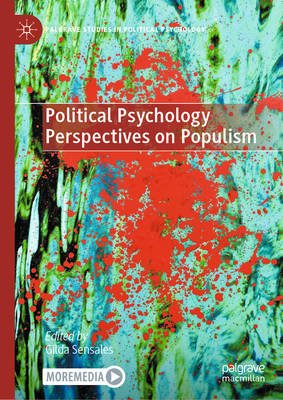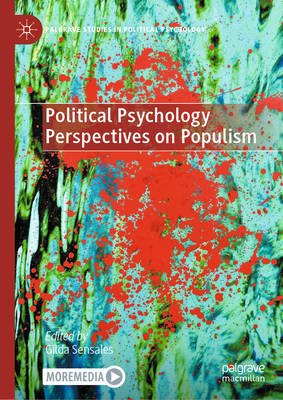
- Afhalen na 1 uur in een winkel met voorraad
- In januari gratis thuislevering in België
- Ruim aanbod met 7 miljoen producten
- Afhalen na 1 uur in een winkel met voorraad
- In januari gratis thuislevering in België
- Ruim aanbod met 7 miljoen producten
Political Psychology Perspectives on Populism
Omschrijving
This book explores the different forms of populism in European countries. Starting from a theoretical point of view, the authors outline the various psychosocial precursors of populisms that have emerged from empirical investigations. Using both mainstream and critical perspectives, the book shows how the field has driven multiple research programmes and methodologies. The authors draw on questionnaires and political communication via social media to analyse the opinions, attitudes, and representations of laypeople and populist leaders. The volume is aimed at researchers, students, and readers with expertise on the subject. It collects contributions from scholars of social psychology, proposing an innovative reading of the social-cognitive, motivational, and emotional processes that can fuel populism.
Specificaties
Betrokkenen
- Uitgeverij:
Inhoud
- Aantal bladzijden:
- 478
- Taal:
- Engels
- Reeks:
Eigenschappen
- Productcode (EAN):
- 9783031440724
- Verschijningsdatum:
- 13/04/2024
- Uitvoering:
- Hardcover
- Formaat:
- Genaaid
- Afmetingen:
- 148 mm x 210 mm
- Gewicht:
- 739 g

Alleen bij Standaard Boekhandel
Beoordelingen
We publiceren alleen reviews die voldoen aan de voorwaarden voor reviews. Bekijk onze voorwaarden voor reviews.








